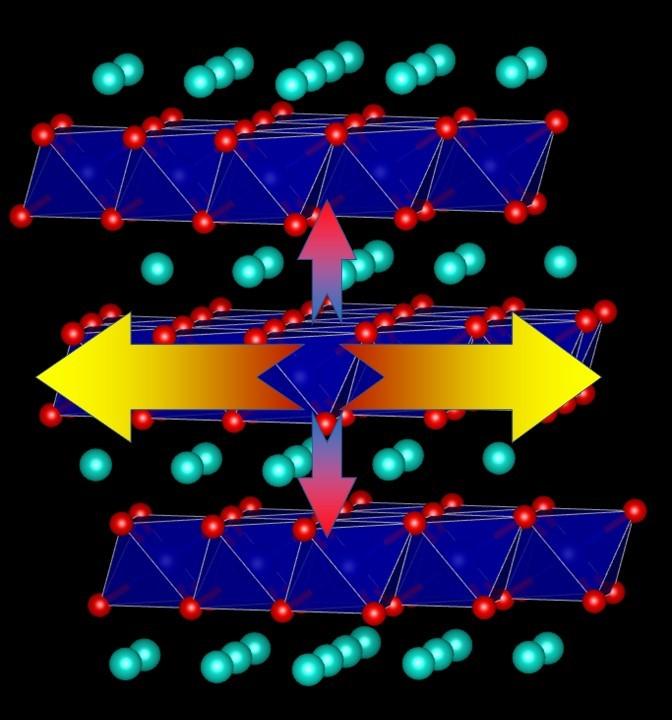- Energy Sciences

Oak Ridge National Laboratory researchers proved that the heat transport ability of lithium-ion battery cathodes is much lower than previously determined, a finding that could help explain barriers to increasing energy storage capacity and boosting performance.
Research on lithium-ion batteries, which are used primarily in smart phones and laptops, has shown that lower heat transport is hampered, which leads to less energy density and poorer performance.
In the study, researchers used quantum mechanical calculations to predict the inherent heat transport capabilities of battery cathodes and the impacts of charging. Further evaluation looked at how strong vibrational forces among ions between the material’s layers can influence heat.
“We found heat transport to be more inefficient than thought due to the non-harmonic vibrational forces among ions, worsening during charging,” ORNL’s Tianli Feng said. “Our results resolve long-standing issues regarding heat transport and provide guidance for how future high-density batteries can be designed.”


